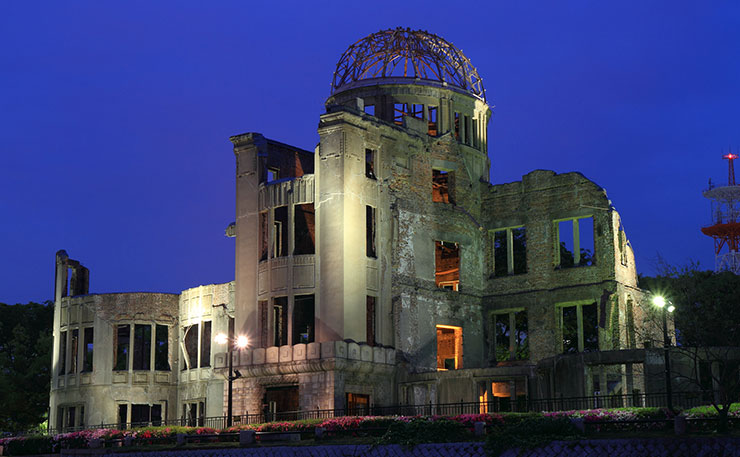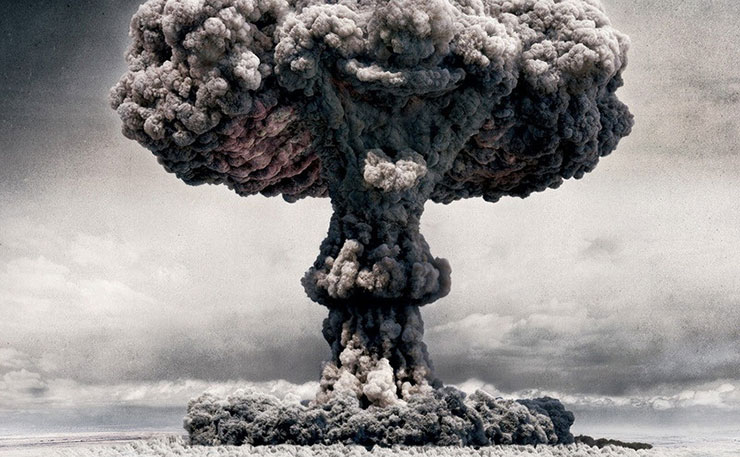OPINION: We might not have nuclear weapons, but we rely on them. And that makes us gigantic hypocrites, writes Tim Wright, Asia-Pacific director of the International Campaign to Abolish Nuclear Weapons (ICAN).
Among those most vociferous in condemning North Korea’s nuclear test last month and its rocket launch this week were the leaders of nations that themselves possess nuclear weapons. Nations that, over half a century, mastered the art of mass destruction by exploding atomic and hydrogen bombs off Pacific atolls and in the Australian outback.
Were these nations now on the path to disarmament, in full compliance with their obligations under the Nuclear Non-Proliferation Treaty, one might overlook their double standard. But all are instead bolstering their nuclear forces – “refurbishing” old warheads and developing new missiles, submarines and bombers to deliver them.
While North Korea may be the only nation to have conducted a full-scale nuclear test this century, the United States, Russia and China continue to conduct sub-critical nuclear tests – where no chain reaction occurs – allowing them to enhance their nuclear forces without violating the global norm against nuclear testing.
In the world of nuclear diplomacy, it’s do as we say, not as we do. The recently implemented deal to curtail Iran’s nuclear program is another illustration of this. When the agreement was struck last July, five nuclear-armed nations and Germany, which hosts US nuclear bombs on its soil, sat opposite Iran at the negotiating table – all demanding of Iran what they will not accept for themselves.
To be sure, it was a diplomatic triumph: membership of the “nuclear club” remains at nine, a potentially catastrophic military intervention has been averted, and crippling economic sanctions have been lifted. But the Iran deal does nothing to diminish the grave threat to humanity from the 15,800 nuclear weapons that already exist in the world. On the iconic Doomsday Clock, we remain just three minutes from midnight.
Among the largest nuclear stockpiles is that of the United States, a chief architect of the Iran deal. It maintains some 7,200 warheads, amassed during the Cold War, and is now trialling new “low-yield” warhead designs, with the purported aim of minimising “collateral damage”. Yet experts warn that this development will serve only to lower the threshold for initiating a nuclear strike.
In the words of General James E. Cartwright, a retired vice-chairman of the Joint Chiefs of Staff, “what going smaller does is to make the weapon more thinkable”. Smaller, though, is perhaps an inapt term. With an explosive yield of up to 50 kilotons, these new weapons could be three times more destructive than the atomic device detonated over Hiroshima seven decades ago, killing 140,000 people.

A ‘rogue state’ such as North Korea – with its much feared, reviled and mocked leader, Kim Jong-un – provides useful cover for alarming developments of this kind. So long as the spotlight shines elsewhere, few will worry about, let alone protest against, the actions of the more ‘responsible’ nuclear powers – nations that, truth be told, have time and again brought us within a hair’s breadth of catastrophe.
Most governments, however, do accept that there are “no right hands for wrong weapons”, to use a phrase of the United Nations secretary-general, Ban Ki-moon. Regrettably, Australia is not yet among them. While the foreign minister, Julie Bishop, was swift to condemn North Korea’s test, her department claims that US nuclear weapons protect Australia from attack and even “guarantee our prosperity”.
This longstanding policy, known as extended nuclear deterrence, implies that nuclear weapons are legitimate, useful and necessary war-fighting instruments. It incites proliferation and undermines disarmament. It renders Australia an outcast in our immediate region, where all other nations have rejected the bomb outright.
Over the past year, 122 nations have formally pledged to work together to prohibit nuclear weapons through a new treaty. To place them on the same legal footing as other indiscriminate, inhumane weapons – from chemical and biological agents to anti-personnel landmines and cluster munitions.
If we are to succeed in eliminating the nuclear threat, we must begin by challenging the double standards that, throughout the nuclear age, have so plagued disarmament efforts. We must declare nuclear weapons unacceptable not just for North Korea and Iran, but for Australia and its allies, too.
Tim Wright is Asia-Pacific director of the International Campaign to Abolish Nuclear Weapons (ICAN).
Donate To New Matilda
New Matilda is a small, independent media outlet. We survive through reader contributions, and never losing a lawsuit. If you got something from this article, giving something back helps us to continue speaking truth to power. Every little bit counts.




